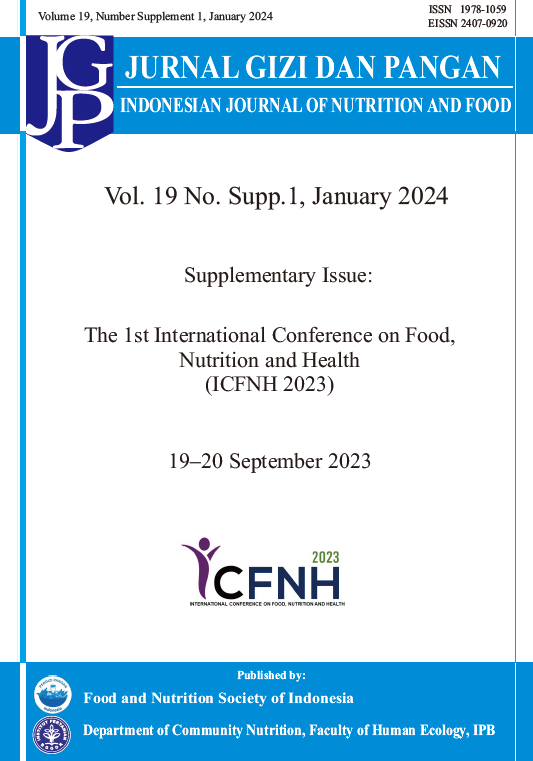Effects of Time-Restricted Eating on Cardiometabolic and Cardiovascular Health: Study Protocol (TRES)
Abstract
This study aims to assess the safety, feasibility, and effectiveness of 10-hr Time-Restricted Eating (TRE) compared to ad libitum eating on anthropometric measurements, cardiometabolic and cardiovascular health in patients with Acute Coronary Syndrome (ACS). The Time-Restricted Eating Study (TRES) is a single-centre, pragmatic, prospective, randomised controlled trial that will include 48 patients with ACS. Participants will be randomised in a 1:1 ratio to the intervention group where eating duration is restricted to 10 hours per day or control group with no limitation of eating duration imposed. Testing is scheduled at baseline and after four weeks of intervention. The primary outcome is change in body weight after four weeks of intervention. Secondary outcomes include changes in body composition, glycaemic and lipid profiles, inflammatory markers, oxidative stress, endothelial function, arterial stiffness, blood pressure, heart rate, safety, and feasibility of TRE on patients with ACS. The study was approved by the UiTM Research Ethics Committee. Findings will be disseminated through manuscripts, reports, and presentations. Findings on the feasibility and effectiveness of TRE in patients with ACS may broaden the body of evidence for implementing TRE as a dietary intervention to prevent secondary cardiovascular diseases.
References
Alinezhad-Namaghi M, Eslami S, Nematy M, Rezvani R, Khoshnasab A, Bonakdaran S, Philippou E, Norouzy A 2023. Association of time-restricted feeding, arterial age, and arterial stiffness in adults with metabolic syndrome Health Sci Rep 6(7):e1385. https://www.doi.org/10.1002/hsr2.1385
Azemi AK, Siti-Sarah AR, Mokhtar SS, Rasool AHG. 2022. Time-Restricted Feeding improved vascular endothelial function in a high-fat diet-induced obesity rat model. Vet Sci 9(5):217. https://www.doi.org/10.3390/vetsci9050217
Chaix A, Zarrinpar A, Miu P, Panda S. 2014. Time-restricted feeding is a preventative and therapeutic intervention against diverse nutritional challenges. Cell Metab 20(6):991−1005. https://www.doi.org/10.1016/j.cmet.2014.11.001
Chan AW, Tetzlaff JM, Altman DG, Laupacis A, Gotzsche PC, Krleza-Jeric K, Hrobjartsson A, Mann H, Dickersin K, Berlin JA et al. 2013. SPIRIT 2013 statement: Defining standard protocol items for clinical trials. Ann Intern Med 158(3):200−207. https://www.doi.org/10.7326/0003-4819-158-3-201302050-00583
Christensen RA, Kirkham AA. 2021. Time-restricted eating: A novel and simple dietary intervention for primary and secondary prevention of breast cancer and cardiovascular disease. Nutrients 13(10):3476. https://www.doi.org/10.3390/nu13103476
Corretti MC, Anderson TJ, Benjamin EJ, Celermajer D, Charbonneau F, Creager MA, Deanfield J, Drexler H, Gerhard-Herman M, Herrington D et al. 2002. Guidelines for the ultrasound assessment of endothelial-dependent flow-mediated vasodilation of the brachial artery: A report of the international brachial artery reactivity task force. J Am Coll Cardiol 39(2):257−265. https://www.doi.org/10.1016/s0735-1097(01)01746-6
De Bacquer D, Jennings CS, Mirrakhimov E, Lovic D, Bruthans J, De Smedt D, Gotcheva N, Dolzhenko M, Fras Z, Pogosova N et al. 2022. Potential for optimizing management of obesity in the secondary prevention of coronary heart disease. Eur Heart J Qual Care Clin Outcomes 8(5):568−576. https://www.doi.org/10.1093/ehjqcco/qcab043
De Cabo R, Mattson MP. 2019. Effects of intermittent fasting on health, aging, and disease. N Engl J Med 381(26):2541−2551. https://www.doi.org/10.1056/NEJMra1905136
Global Burden of Disease Collaborative Network IFHMaEI. 2021. Global Burden of Disease Study 2019 (GBD 2019). https://www.healthdata.org/gbd/2019
Golbidi S, Daiber A, Korac B, Li H, Essop MF, Laher I. 2017. Health benefits of fasting and caloric restriction. Curr Diab Rep 17(12):1−11.
Harrison SL, Buckley BJR, Rivera-Caravaca JM, Zhang J, Lip GY. 2021. Cardiovascular risk factors, cardiovascular disease, and COVID-19: An umbrella review of systematic reviews. Eur Heart J Qual Care Clin Outcomes 7(4):330−339. https://www.doi.org/10.1093/ehjqcco/qcab029
Zaman MK, Teng NIMF, Kasim SS, Juliana N, Alshawsh MA. 2023. Effects of time-restricted eating with different eating duration on anthropometrics and cardiometabolic health: A systematic review and meta-analysis. World J Cardiol 15(7):354−374. https://www.doi.org/10.4330/wjc.v15.i7.354
Katsi V, Papakonstantinou IP, Soulaidopoulos S, Katsiki N, Tsioufis K. 2022. Chrononutrition in cardiometabolic health. J Clin Med 11(2):296. https://www.doi.org/10.3390/jcm11020296
Lin FJ, Tseng WK, Yin WH, Yeh HI, Chen JW, Wu CC. 2017. Residual risk factors to predict major adverse cardiovascular events in atherosclerotic cardiovascular disease patients with and without diabetes mellitus. Sci Rep 7(1):9179.
Manoogian ENC, Chow LS, Taub PR, Laferrere B, Panda S. 2022. Time-restricted eating for the prevention and management of metabolic diseases. Endocr Rev 43(2):405−436. https://www.doi.org/10.1210/endrev/bnab027
[MoH] Ministry of Health. 2017. Primary & Secondary Prevention of CVD. Malaysia (KL): MoH.
Patterson RE, Sears DD. 2017. Metabolic effects of intermittent fasting. Annu Rev Nutr 37:371−393. https://www.doi.org/10.1146/annurev-nutr-071816-064634
Poggiogalle E, Jamshed H, Peterson CM. 2018. Circadian regulation of glucose, lipid, and energy metabolism in humans. Metabolism 84:11−27. https://www.doi.org/10.1016/j.metabol.2017.11.017
Regmi P, Heilbronn LK. 2020. Time-restricted eating: Benefits, mechanisms, and challenges in translation. Iscience 23(6):101161. https://www.doi.org/10.1016/j.isci.2020.101161
Rynders CA, Thomas EA, Zaman A, Pan Z, Catenacc VA, Melanson EL. 2019. Effectiveness of intermittent fasting and time-restricted feeding compared to continuous energy restriction for weight loss. Nutrients 11(10):2442. https://www.doi.org/10.3390/nu11102442
Wan F. 2021. Statistical analysis of two arm randomized pre-post designs with one post-treatment measurement. BMC Med Res Methodol 21(1):1−16. https://www.doi.org/10.1186/s12874-021-01323-9
Wilkinson MJ, Manoogian EN, Zadourian A, Lo H, Fakhouri S, Shoghi A, Wang X, Fleischer JG, Navlakha S, Panda S et al. 2020. Ten-hour time-restricted eating reduces weight, blood pressure, and atherogenic lipids in patients with metabolic syndrome. Cell Metab 31(1):92−104. https://www.doi.org/10.1016/j.cmet.2019.11.004
Authors

This work is licensed under a Creative Commons Attribution-ShareAlike 4.0 International License.





